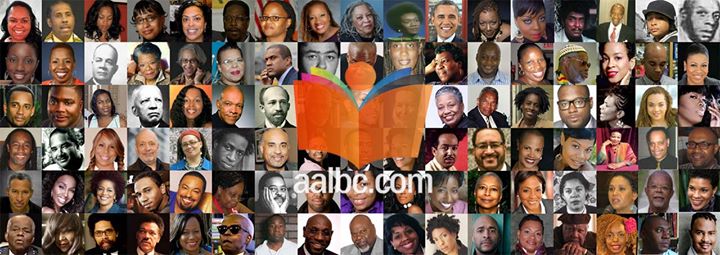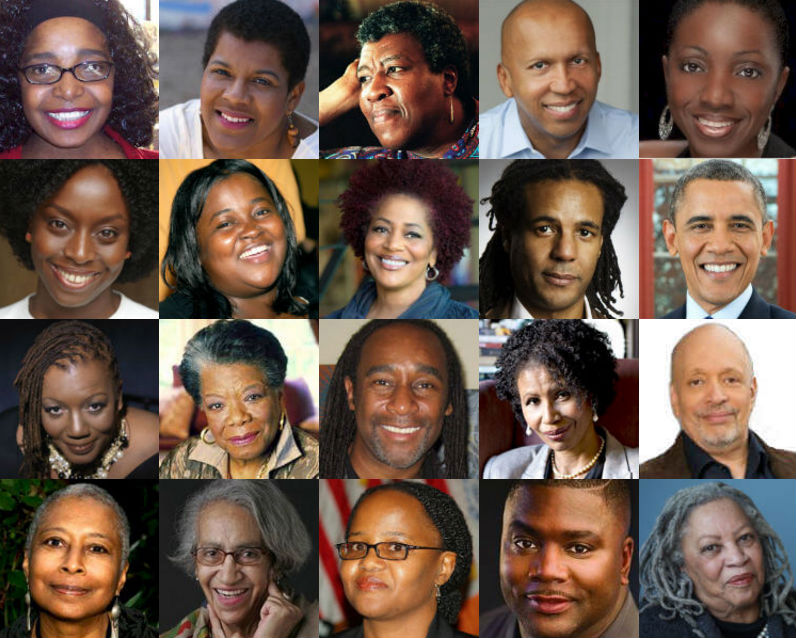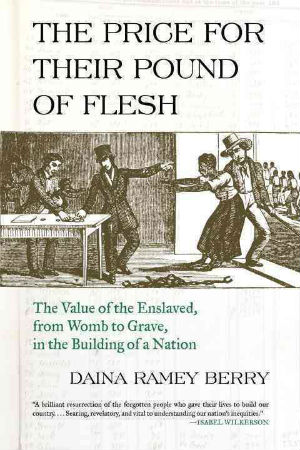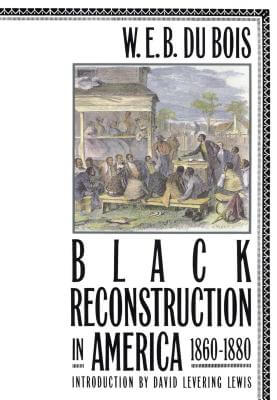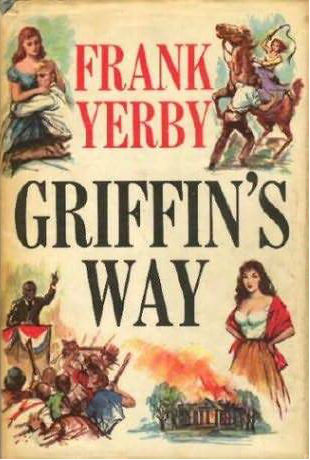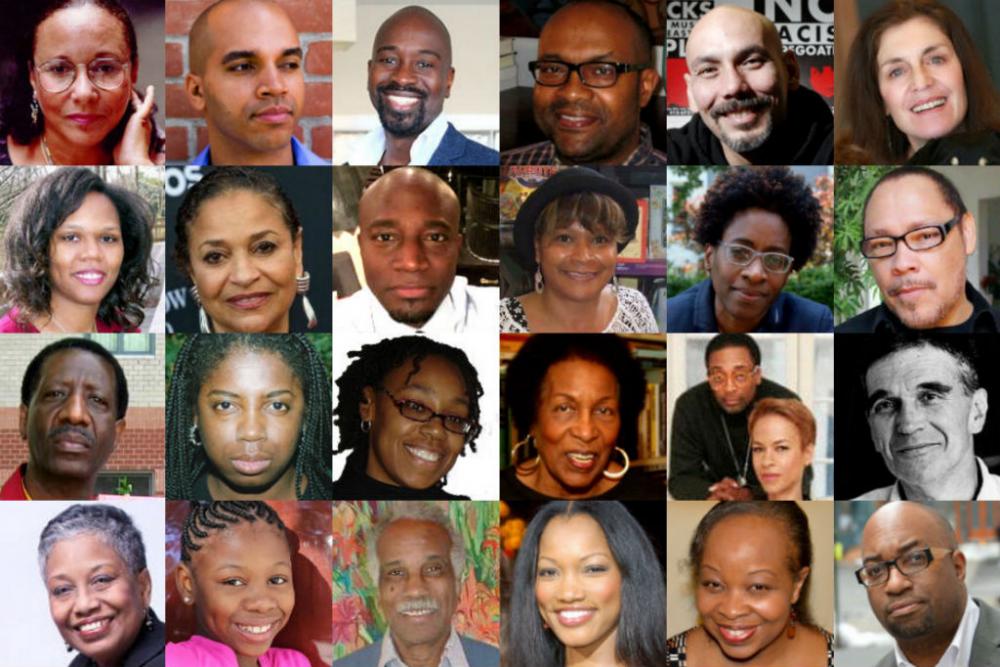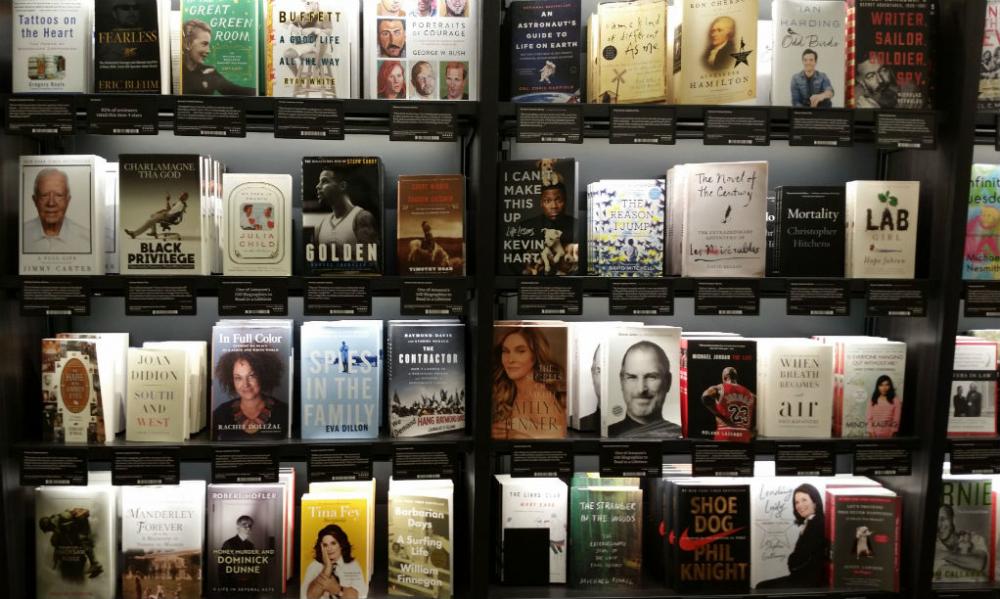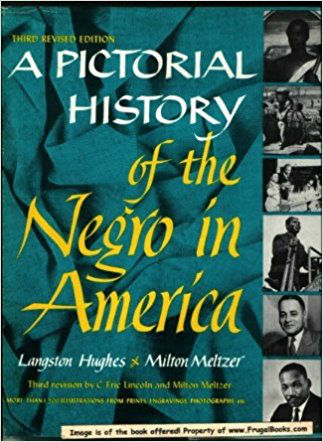-
Posts
14,321 -
Joined
-
Last visited
-
Days Won
790
Content Type
Profiles
Forums
Blogs
Events
Everything posted by Troy
-
WHite folks are also profiting quite handsomely as well, even though it is still against federal law.
-
Pioneer don't share that theory with anyone else
-
If a professor is intimidated by the reaction they may get from a student they are correcting, they should not be teaching. The reason was certainly #2. I know the woman felt she was better than me and she obviously had no desire to help me. The whole environment reeked of white privilege. There were well over 500 MBA students in my class, and only a handful of Black men. the school was in NYC. There were only two Black men from NYC (I was one of them). I never had a Black professor. We were all destined to work for companies with the same demographics and sensibilities. Some Black men thrive in this environment I was not one of them. Sure i did my job and often enjoyed it, but I always felt like an outsider, as if I did not belong. This could be me projecting my own bias as well, but the reality I grew tired of "Frontin."
-
After decades of using a computer to communicate with other and in a professional capacity I can no longer legibly write in cursive. My signature if little better that the crawled X, used by illiterate folks. Outside of cards I rarely receive information written that way. And this goes to my point slang does not actually communicate more information, it is just communicated it differently as in the difference between aks and ask. What I have seen is a shrinking of our vocabulary. We started saying "naa'mean" instead actually expressing our thoughts. Pioneers describes this as inventing language, I view it as a devolution of language, because less is being communicated--not more. Some believe a limited vocabulary limits depth of thought. I'm not so sure about that, but if those thoughts can't be expressed to others it makes little difference
-
The list of growing. I have enough votes now to begin sorting the Favorite Black Authors of the 21st Century by popularity Check out the preliminary results and cast your vote. I'm a bit disappointed by the lack of authors from other countries on this list. I have reached out to folks across the planet and while those individuals may have cats votes their respective audiences do not appears have done so. Authors who have only obtained one votes are not included in the preliminary results. I've also removed votes for author who voted for themselves. I'm surprised so many people actually do this. Everything is a marketing opportunity for some folk. I will be interesting to see which authors span both the 20th and 21st century lists. There won't be any surprises I'm sure, but it will highlight the authors you have sustained a high level of popularity over a long period of time.
-
Well you know white folks really believe Black people are really a missing link between monkeys and themselves. Again modern science explains that, genetically, white people are more different than each than we are from them. But hey people like to feel superior to others and perpetuating these stereotypes plays well to and resonates with the white masses. I'll wait for it to be available online later this year...
-
To emphasize Cynique's point. if anyone one of the characters in 45's Whitehouse were black they would have been deservedly laughed out or consideration. Look at that kid Kushner; does anyone that absent his inherited with, whiteness and ,marriage to 45's daughter that he would be doing anything but working some minimum wage job (all due respected to minimum wage job workers)? @Pioneer1, sure you are right regarding the nature of traffic to the site. I know much of what I push will not appeal to the masses. But I would rather people "reach" to engage with the content here, rather than me trying to speak down to people to increase engagement. Besides the competition for appealing to the lowest common denominator is STIFF. That demographic's attention span is short and fleeting. It takes a powerful machine to crank out that type of content with the regularity to compete on traffic. The most successful entities in this space, like social media, have there own visitors produce this content for them. This is why I don't publish content on social media and why I think those that do should be paid. One of the most popular pages on my site, often hundreds of visitors a day, is obtained by people running the query "who is elias gutierrez" When I first noticed this a few years ago. I had no clue who Elias Gutierrez was, and someone explained it to me. I posted that explanation on AALBC.com and now THAT page is #3 on the search results! This is what you would describe as pure "Gossip." I could greatly expand content on this dude to attract more traffic, but again I have no interest in doing this... But one thing I'l will to do that appeals to more folks is lists. These lists ALL generate a great deal of traffic. My new database allows me to create these lists very easily and update these lists and I find they are a great way to introduce readers to new authors and books. As far as reaching out to academia at universities even the one I work for is something to consider. Outside of the folks at Medgar Evers College in Brooklyn, I have not engaged with universities or colleges at all.
-
White cops railroading negroes--who knew? Cops set up Black folks; enforce laws more harshly and frequently existing laws; and take brides from criminals. This is nothing new or unknown. The frustrating part is despite all of this, and more, we are viewed as being more naturally criminal... this is a shame.
-
I may have told my "ask" story before but check this out. When i was working on my MBA and NYU's Stern school of business I was giving a preliminary presentation for a final project in a marketing class. Now keep in mind this is an all white class, the professor, my teams members and my class mates--all white. During my portion of the presentation I said, "We axed over 100 people which brand of sneakers they prefer." No one batted an eye or made a comment. Later however one of my teammates, a guy I became friendly with, told me the professor told him that I mispronounced the word "asked." The professor NEVER said a word to me! But felt it perfectly OK to talk about me with the other white people, in my absence. I was angered by this, but trust me I never EVER mispronounced that word again. I simply was not aware that I was mispronouncing the word. It was the way I was taught to say the word, and no one even after 7 years of college, at that point, ever corrected me--not even that racist professor at Stern, and she was racist--otherwise she would have immediately corrected me the way I do my students. Obviously, I was much more sensitive to this and have observed many Black people across all classes and education levels mispronounce the word the way I had. I also wonder how white people negatively judge Black folks on the way we speak in general. Now my experience is just an anecdote, but I think it is reflects of how we are judged by white people and even sidity Black folks based upon the way we speak.
-
-
Pioneer English is my language and has been for generation--at least as far back as I can track down every ancestors line. What is your language? Sometimes we make up words simply because we don't have the vocabulary to use the words which already exist. We used to use solid synonymously with favor. As in, "Ma Brother, would you do this solid." Or it way to express gratitude as in, "Yo nigga, I tole 'ole girl I was wit you last night. Cool/" "''Course mah nigga." "Solid." Sure skiers have more ways of describing snow too.
-
@Pioneer1, thanks for the kind words regarding the site, but it could be infinitely better with more support from my own people, the very people whose culture I'm trying to uplift. I don't know if Black folks don't support Black business because they don't want to see another Black business excel. If that exists I suspect it is a very small inconsequential percentage of people. I could go on and on about the structural disadvantages Black folks have relative to the majority culture. But you can read Coates and many other books to understand this. I think part of the problem is that folks are too busy struggling themselves and aren't in a position to help another business. So if they can save 40% off the price of a $30 hardback--assuming the even have the time, energy, or inclination to read such a book--guess who is gonna get that sale. Now my overhead is much lower than Amazon's, but I don't have Wall Street analysts hyping my business getting investors to give me money so that I can continue selling books at a loss--burying even my biggest competitors. Meanwhile, virtually every author enthusiastically gives Amazon free publicity by saying their books can be purchased on Amazon. There was a time when an author felt a great deal of pride by saying their book was available in a massive chain store, but ANYBODY can get their book on Amazon--there is no prestige in it being available there. Still, authors get Amazon all the glory, rarely mentioning a Black independent store... Perhaps the reason the Black owned stores have trouble maintaining stock is that they can't get a business loan, and they have a much more difficult time obtaining credit, the deliveries are not as timely to their neighborhoods, they find it difficult to get a lease in a nice location, or they don't get the best terms from distributors. The fact of the matter it is more difficult for us. That lack of support from other Black folks just ads insult to injury. All you see is a struggling business, which you attribute to laziness. I'm telling you as a business owner there are structural factors that prevent us from achieving at the same level as out white counterparts. Amazon started out selling books out of a garage right? We will never have strong Black business unless people invest in them and divest of the massive corporations. In other words, skip Amazon and a patronize a Black owned bookstore.
-
I didn't even know you could embed Facebook posts here Thanks for flippin' the script @HICKSON!
-

Looking for a good book on the Reconstruction period in America
Troy replied to Troy's topic in Black Literature
Hete is another recommendation, again courtesy of Mr. Stovall: Black Reconstruction In America, 1860-1880 by W.E.B. Du Bois -

Looking for a good book on the Reconstruction period in America
Troy replied to Troy's topic in Black Literature
Eugene, man I'd forgotten the profile you wrote about Yerby's work. I Just now migrated your article “Who Was Frank Yerby?” to the site's new format. Thanks again! -
The so called Eskimo, I heard somewhere has 20 different words for "snow," implying a more profound understanding in the differences in that form of precipitation. I know some snow is better at making snow balls that other types of snow. I call the former type of snow "packing snow." I just call the other type of snow..."snow." Black folks use the the word snow in a completely different context to mean a white person, but there is no real distinction in the meaning of the two words "snow" and "white," it is just slang or a funky way of speaking. @Pioneer1 since you brought it up why don't you explain what the words "Solid" and "Jive" mean, and how those concepts can not be expressed with English language. As I've said I'm not suggesting that meaning can't be lost in translation. I'm disputing is that much of what you are suggesting about Black slang is not the same thing (in the vast majority of cases). Perhaps you'll demonstrate and exception with your definition of "solid."
-
Pioneer the answer to your question is quite simple "The white man's ice is colder." That is a cliche that meant very little to me until I started my own business. I won't bore you with details, but at some point we as a group have to invest in our own businesses. Sure there are people willing to do this but not nearly enough. I've read the statistics about our collective buying power, but unless people are willing to spend with us, that buying power means nothing. Look man, I've been running the site for 20 years and I still can't hire a full time employee and I struggle to pay the folks I do pay. In the same time frame Bezoe has become a multi-bazillionaire. Today I HAVE to sell books as an Amazon affiliate because readers simply will not buy from me directly. Writer's tell readers to go Amazon to buy their books as if readers don;t already know that or as if Amazon is the only place to buy books. They completely ignore the indie booksellers that push their books. This does not have to be the case. But we do not invest in our own business. We happily give our money to the richest people on Earth! It really boggles the mind, because there are so many people who talk about Black unity but so few that actually practice it.
-

Looking for a good book on the Reconstruction period in America
Troy replied to Troy's topic in Black Literature
@MAFOOMBAY, store manager. I'm sure you have some stories to tell. They've closed several B&N in NYC. I frequent one in Pasco county Florida. I'm keeping my fingers crossed they stay open. The first time I stepped foot in the store I asked for their list of scheduled book signings. They told me they did not do book signings. I was like whoa! No book signings; what kinda book store is this? I've been going there for over 6 years they seem to do doing fine,,, But Wall Street was a lot less willing to tolerate a lack of profits from Amazon for a lot longer than they would from Amazon...I guess monopolies are a much better investment over the long term. Eugene thanks for the recommendation. I've quoted you on Griffin's Way page. -
...do I hear 45 playing a violin in the background.
-

Looking for a good book on the Reconstruction period in America
Troy replied to Troy's topic in Black Literature
Did you work for them as a bookseller? Or in an administration capacity? It appear the very same things that Amazon did to put independent book seller both online and off out of business adversely affected B&N as well. -
26 Bestselling Children’s Book Authors You'll Definitely Love ♥ There have been 115 bestselling children's book authors in the history of AALBC.com. So far 26 that have made that list 2 or more times. Most of these sales have taken place in the last couple of years as the volume of children's book sales have picked up signifcantly.
-

Looking for a good book on the Reconstruction period in America
Troy replied to Troy's topic in Black Literature
@MAFOOMBAY, Thanks for the suggestion. I virtually never modify someone else's post, but I wanted to add the book cover and it just made more sense to add it directly in your post. Also I noticed that you posted the book link to Barnes & Noble I can't remember that last time someone posted a link to B&N--almost everyone posts links to Amazon--even if they have a website. Was this a conscious effort not to use Amazon? Thanks again! -
-

Looking for a good book on the Reconstruction period in America
Troy replied to Troy's topic in Black Literature
Funny when I looked for the book on Amazon yesterday I could not find it. This morning I found it with no problem. Amazon is selling the book via 3rd parties, so they are using the ASIM nuimber that is unique to their database. Mel does you book have an ISBN? The ISBN is how I uniquely identify books in my database. The book is not in Ingram's database and something I can buy, but as you suggest several version of the book are available a libraries. My side does dynamically generates links to libraries, but the link is based upon ISBNs so my library link is broken, because the link's query is based upon ISBN. -
Yeah I'm sure you are right that the highways are very likely to be jammed Cynique. I plan to drive to to either TN, GA, NC, or SC. depending on who has the best forecast. Yeah Del the sky will change outside the path of the totality, but by all accounts that I've read it is a completely different experience. The following account is one of the more subdued ones I've read: "I doubt if the effect of witnessing a total eclipse ever quite passes away. The impression is singularly vivid and quieting for days, and can never be wholly lost. A startling nearness to the gigantic forces of nature and their inconceivable operation seems to have been established. Personalities and towns and cities, and hates and jealousies, and even mundane hopes, grow very small and very far away.Professor Langley says of this superb sight: ‘The spectacle is one of which, though the man of science may prosaically state the facts, perhaps only the poet could render the impression." --Professor Langley

